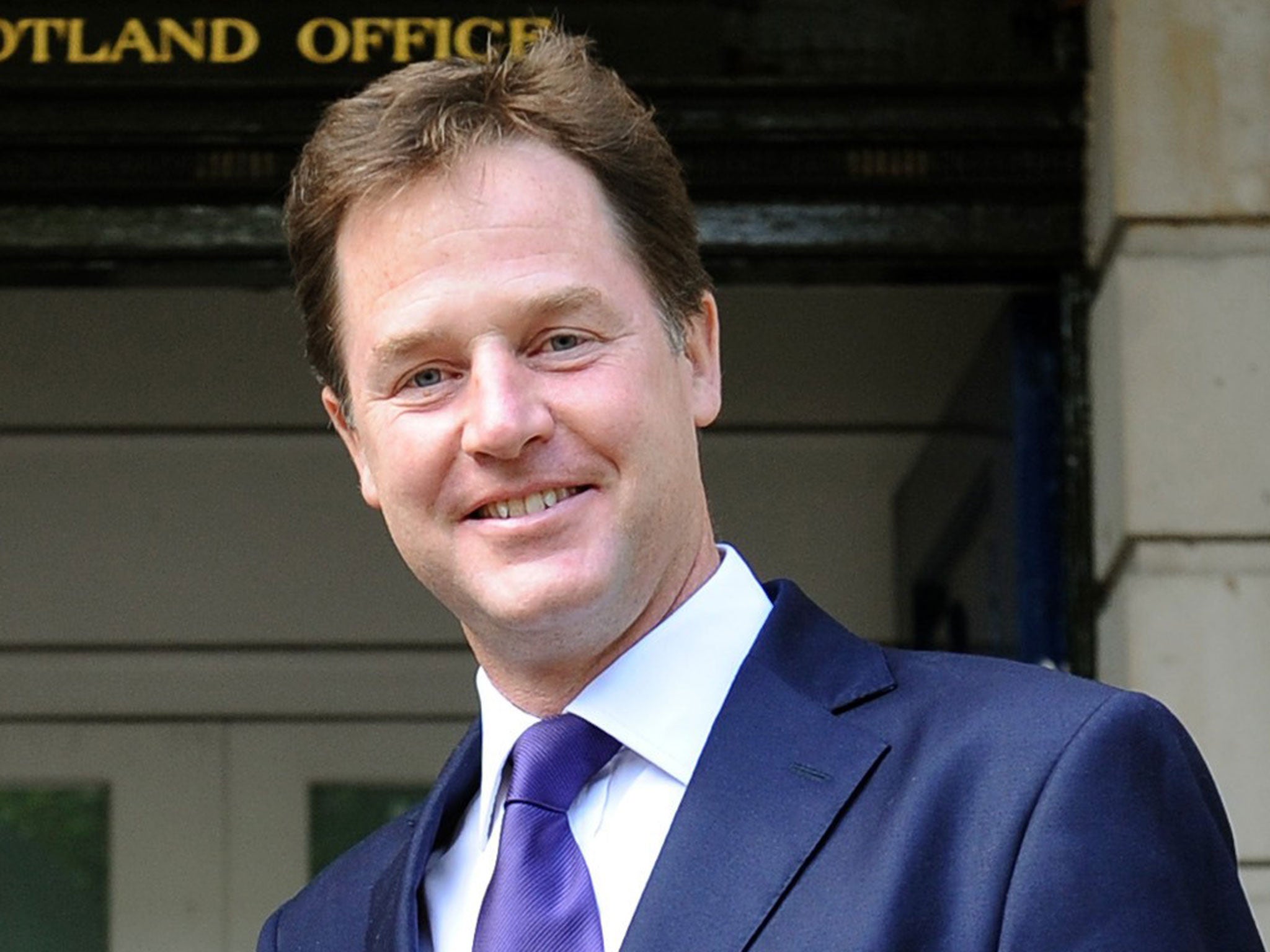David Cameron’s benefits crackdown ‘will hit single parents hardest’
Critics warn that Tory ‘earn or learn’ policy could leave 160,000 with nowhere to live

David Cameron may be forced to rethink his plan to deny under-25s an automatic right to state benefits because many of the people losing out would be single parents.
Nick Clegg is worried that parents could be affected by proposals to restrict housing benefit for the more than one million “Neets” – young people not in education, employment or training – under a strategy announced by the Prime Minister at last week’s Conservative Party Conference.
Official figures show that 166,000 (46 per cent) of those under 25 who claim housing benefit are lone parents. So are 8,000 (2 per cent) of those claiming jobseeker’s allowance, which could also be limited under the “learn or earn” strategy being drawn up by the Downing Street Policy Unit.
A senior Liberal Democrat source told The Independent yesterday: “We are not opposed to conditionality in the benefits system, which currently exists. However, we are completely against turning the most vulnerable in society into easy targets.
“That is why when the Conservatives put forward plans last year to remove housing benefit from all under-25s, they were quickly blocked by the Liberal Democrats.
“The Conservatives have provided absolutely no details about what this idea entails but even they must see the need to support young parents.”
Groups representing single parents are warning that they would be badly affected if housing benefit were included. Fiona Weir, chief executive of Gingerbread, said: “Almost half of the young people supported by housing benefit are single parents, and the overwhelming majority rely on this support because there is nowhere else for their family to live. Moving back in with mum and dad simply isn’t an option for everyone.”
She added: “Many young single parents are keen to skill-up and enter the job market, and provide a better income for their family. The barriers they face are a lack of flexible jobs and access to childcare, not a lack of aspiration to work. It is not clear from what we’ve seen of the ‘earn or learn’ policy if any of these barriers would be tackled.”
Charities are warning that under-25s will already lose out under the Government’s plans to streamline the benefits system by bringing in universal credit.
At present, single parents are exempt from rules that provide young adults a lower rate of support. Universal credit will remove this exemption, resulting in 240,000 young parents losing around £780 a year.
The Government’s figures show that the changes to support for all parents under 25 will result in 100,000 more children being pushed into poverty.
More than 70 charities and community groups will today launch a campaign in support of people who rely on benefits at some point in their lives. Polling for the “Who Benefits?” drive found that, despite attempts by some Conservatives to portray claimants as “skivers”, 81 per cent of the public say that benefits should be there for people who need them.
But the YouGov survey also found that more than a quarter (27 per cent) of those receiving benefits say they have hidden their claims because of what people will think. More than half (51 per cent) of those who have never been on benefits say they would feel embarrassed to draw them.
The groups backing the campaign to give claimants a “voice” include include Gingerbread, The Children’s Society, Crisis, Macmillan Cancer Support and Mind.
Paul Farmer, chief executive of Mind, said: “Lots of individuals with mental health problems face stigma and discrimination, as their condition is less visible than a physical disability. These new statistics suggest those who claim benefits experience double the stigma.”
Join our commenting forum
Join thought-provoking conversations, follow other Independent readers and see their replies
Comments
Bookmark popover
Removed from bookmarks